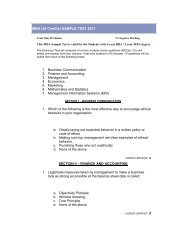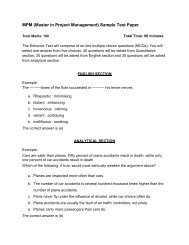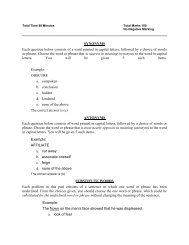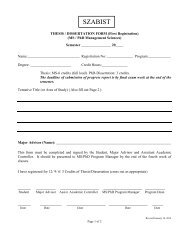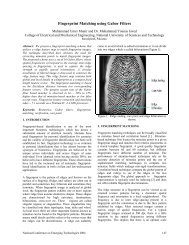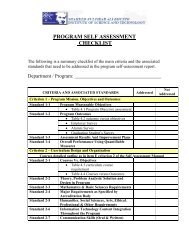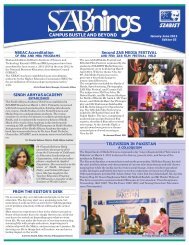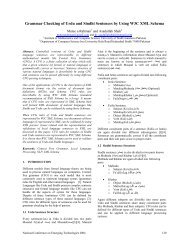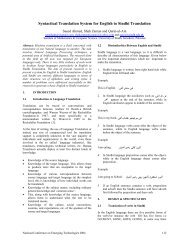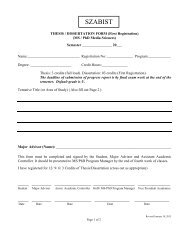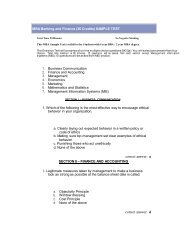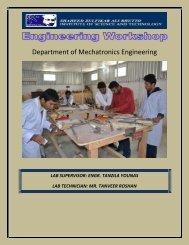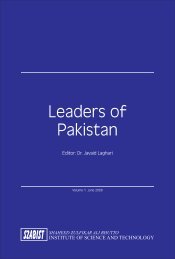Benazir Bhutto - SZABIST
Benazir Bhutto - SZABIST
Benazir Bhutto - SZABIST
You also want an ePaper? Increase the reach of your titles
YUMPU automatically turns print PDFs into web optimized ePapers that Google loves.
Who killed <strong>Bhutto</strong>? Interestingly, the question that comes to mind is not only who did it, but why and<br />
what they would have to gain in her absence, especially with the forthcoming elections around the<br />
corner. For militants with Al-Qaeda linkages, murdering a westernised, secular woman leader who<br />
they saw as a traitor to their faith, culture and society would be incentive enough in itself. The<br />
elections would be left in jeopardy with President Musharraf’s position even shakier than before.<br />
Commenting on <strong>Bhutto</strong>’s assassination, Jason Burke, a senior journalist with The Observer and author<br />
of “Al-Qaeda: The True Story of Radical Islam” suggests that this kind of high-profile assassination,<br />
which has never really been al-Qaeda’s style until now, would be exactly the sort of spectacular attack<br />
they have been seeking for some period without getting and knowing it would receive media attention.<br />
American experts have also pinned the blame thus far on al-Qaeda linked elements with close ties to<br />
Taliban leaders within Pakistan’s embattled northern belt.<br />
Endorsing the above, the Pakistani interior ministry has announced the hand of Baitullah Mehsud, an<br />
influential Taliban leader fighting against the state in South Waziristan. His spokesman denies the<br />
involvement. If these linkages are authentic, then one would say that an entire cluster of cells could<br />
have had a role in <strong>Bhutto</strong>’s assassination including internal jihadi groups flourishing under the<br />
auspices of certain elements within Pakistani intelligence coupled with connections to al-Qaeda’s.<br />
Ms <strong>Bhutto</strong> was undoubtedly a fearless woman with conviction, or else, this daughter of the east<br />
wouldn’t have returned to a very turbulent Pakistan after eight years in self-exile. The threats to her<br />
life didn’t scare her, she said. “It’s all in God’s hands,” <strong>Benazir</strong> told reporters when returning on<br />
October 18. The Pakistan she left in the late nineties was not the same country she returned to after<br />
years wooing the west to support her politics of return, alongside raising her children, between doing<br />
the lecture circuit in America and Europe. She claimed on numerous occasions that she was aware of<br />
the political risks she would take in the near future.<br />
<strong>Benazir</strong> wrote in her memoir, of what life as a young woman at Harvard felt like. “I was amongst a<br />
sea of women who felt as unimpeded by their gender as I did.” At Oxford, she adopted a westernised<br />
way of life, spending winters at the Swiss ski resort of Gstaad. Her passions at the time included<br />
reading royal biographies and woozy romances, and shopping at Harrods in London — a habit she<br />
maintained throughout the rest of her life. It was right after her Oxford years that <strong>Benazir</strong> was thrust<br />
into the heart of Pakistani politics after her father was imprisoned and later hanged by General Zia-ul-<br />
Haq.<br />
She writes of her last meeting with her father, through a metal lattice at the Rawalpindi central prison.<br />
“But I did not cry. Daddy told me not to,” she recalled. There is pathos in her life’s story: it almost<br />
reminds of this woman of contradictory and complex behaviour. Years spent under house arrest and<br />
even in jail left no time for her to fall in love with a life partner and so an arranged marriage. She was<br />
destined, albeit reluctant to adopt the <strong>Bhutto</strong> political mantle, her politics included her father’s popular<br />
slogans, roti, kapra and makan (bread, clothing and shelter) and then recently, her promise of<br />
employment and education to the masses. Pinky, as <strong>Benazir</strong> was named, always enjoyed the finer<br />
things in life, attributing this penchant to her sense of entitlement as the daughter and heir of a feudal<br />
land-owning family.<br />
Was she a saviour this time around for the lost people of Pakistan or a wily politician who thought she<br />
might be invincible, despite warnings that her security could not be guaranteed. Why did she flirt with<br />
danger and death? Was she simply courageous and stubborn? In an interview in the nineties to the<br />
BBC, Ms <strong>Bhutto</strong>, once said that watching her father, ZAB die, in many ways prepared her for the



